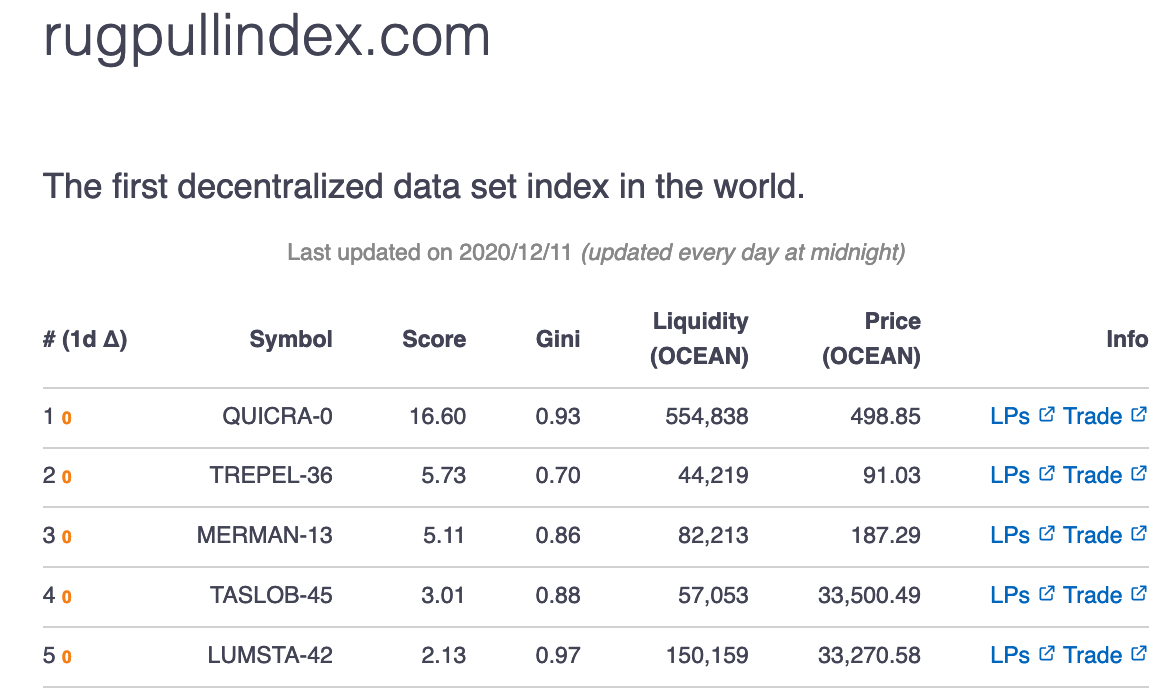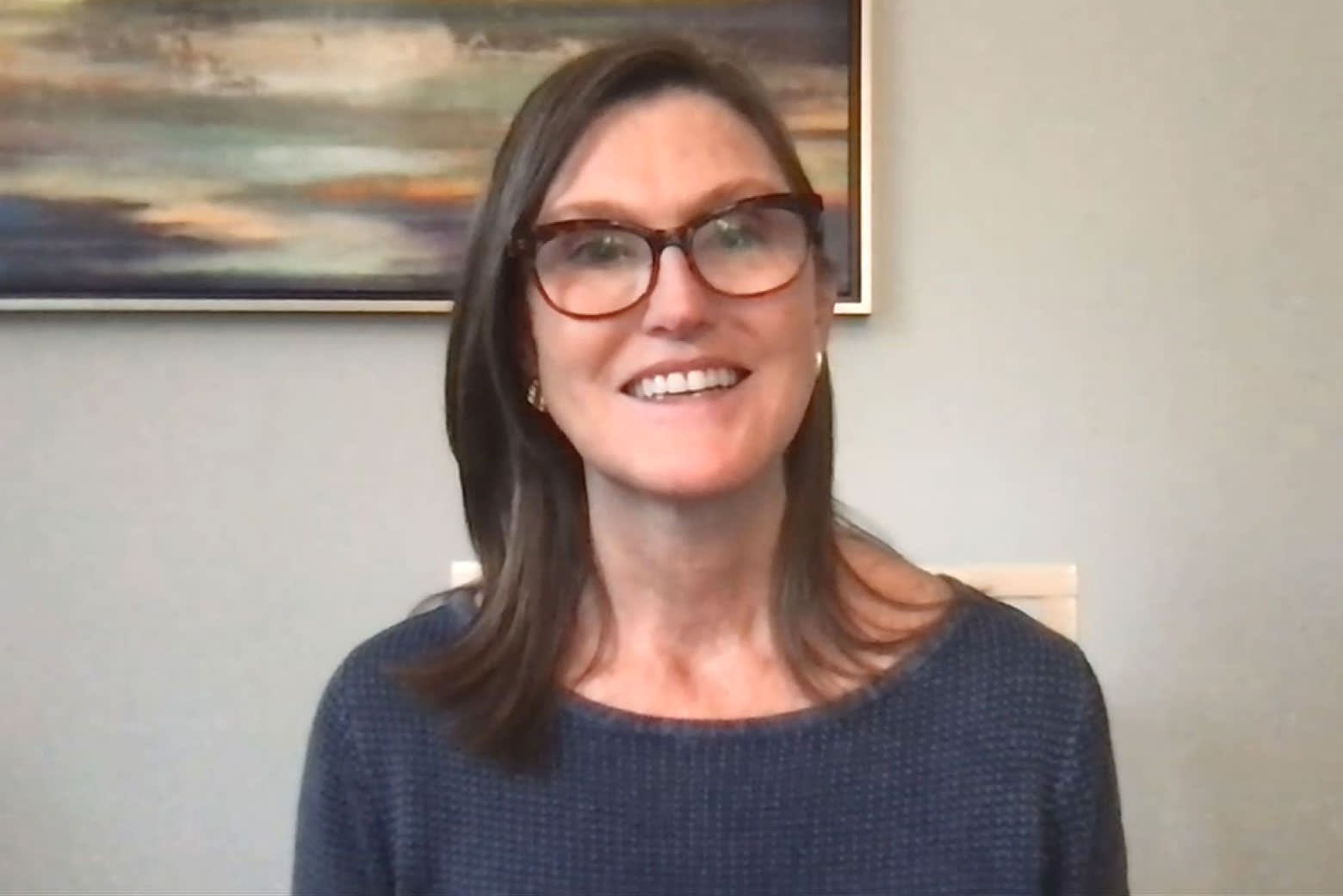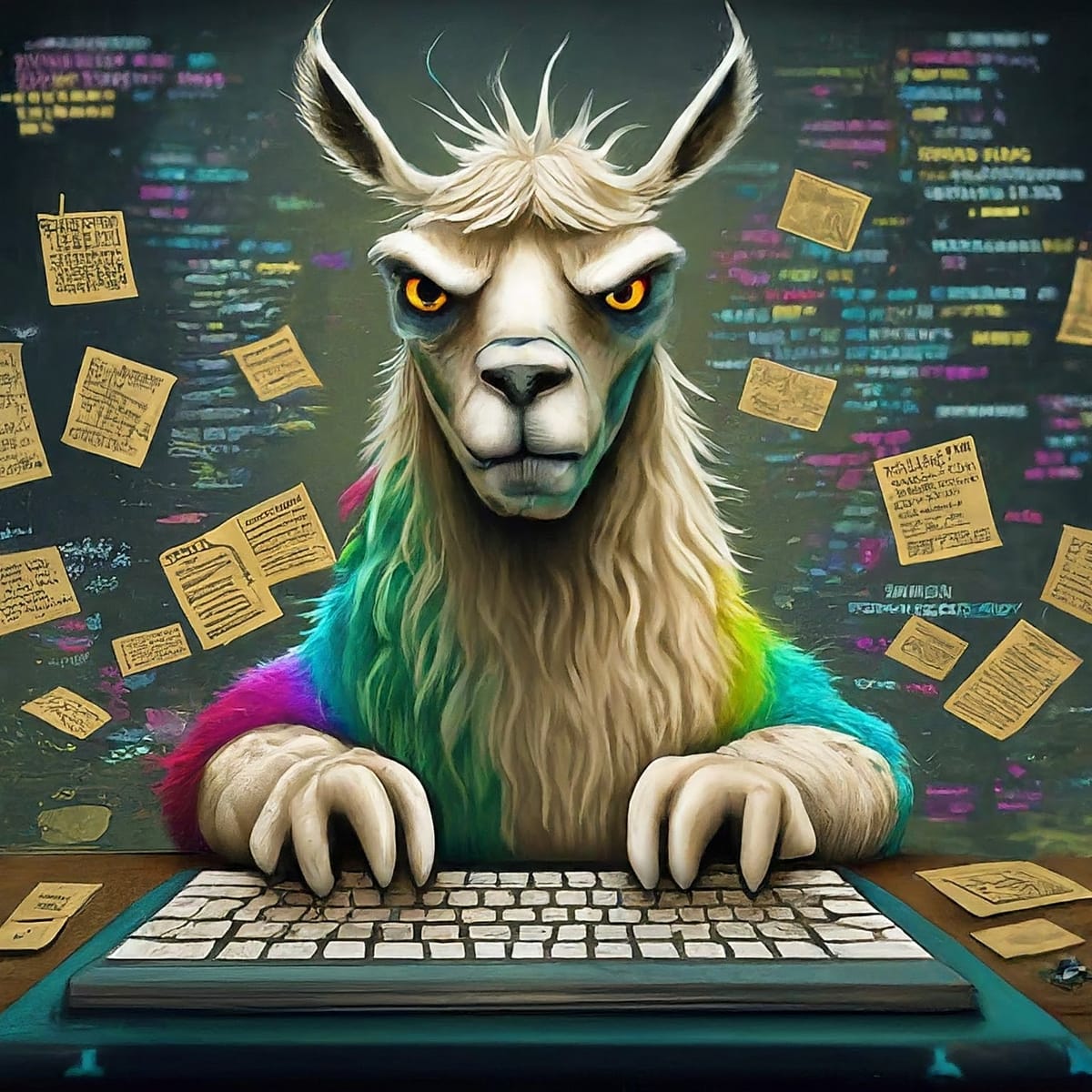
Meet rugpullindex.com, an index fund for data sets
TL;DR: I built a financial index that rates data sets by their markets' performance (liquidity and equality of liquidity shares). Check out the website and the minimalistic blog, or keep on reading the article.
Would you pay a stranger on the internet to buy a data set they're offering without knowing them or ever having seen the data? Tough decision! But that's precisely the type of situation Ocean Protocol users face in its newly-launched decentralized data set market [3].
I'll spare you most of the details of how it all works and say this: 2020's most transforming technology has been on-chain markets. In particular, the implementation that uniswap.org is using called automated market makers.
Simply put, they work by incentivizing users to pool a pair of assets at a ratio they deem as the assets' current prices. These users, I herein call them liquidity providers, e.g., pool 1 ETH and 540 USDC, so that when a buyer of either asset comes along, they can immediately trade 1 ETH for 540 USDC or 540 USDC for 1 ETH. This principle works fantastically at scale, as the pool incentivizes liquidity-providing by charging buyers and sellers a small fee, which is distributed by the pool to each liquidity provider, respectively [1].
This model has been so successful that there've been days where decentralized trading on Uniswap outperformed volumes on Coinbase! Which, of course, has lots of implications on the cryptocurrency space. I think it's no overstatement to say that automated market makers may be the killer app for crypto.
Leave a Comment
Related Posts








/cdn.vox-cdn.com/uploads/chorus_asset/file/25417835/51684715392_2615642caa_o.jpg)











